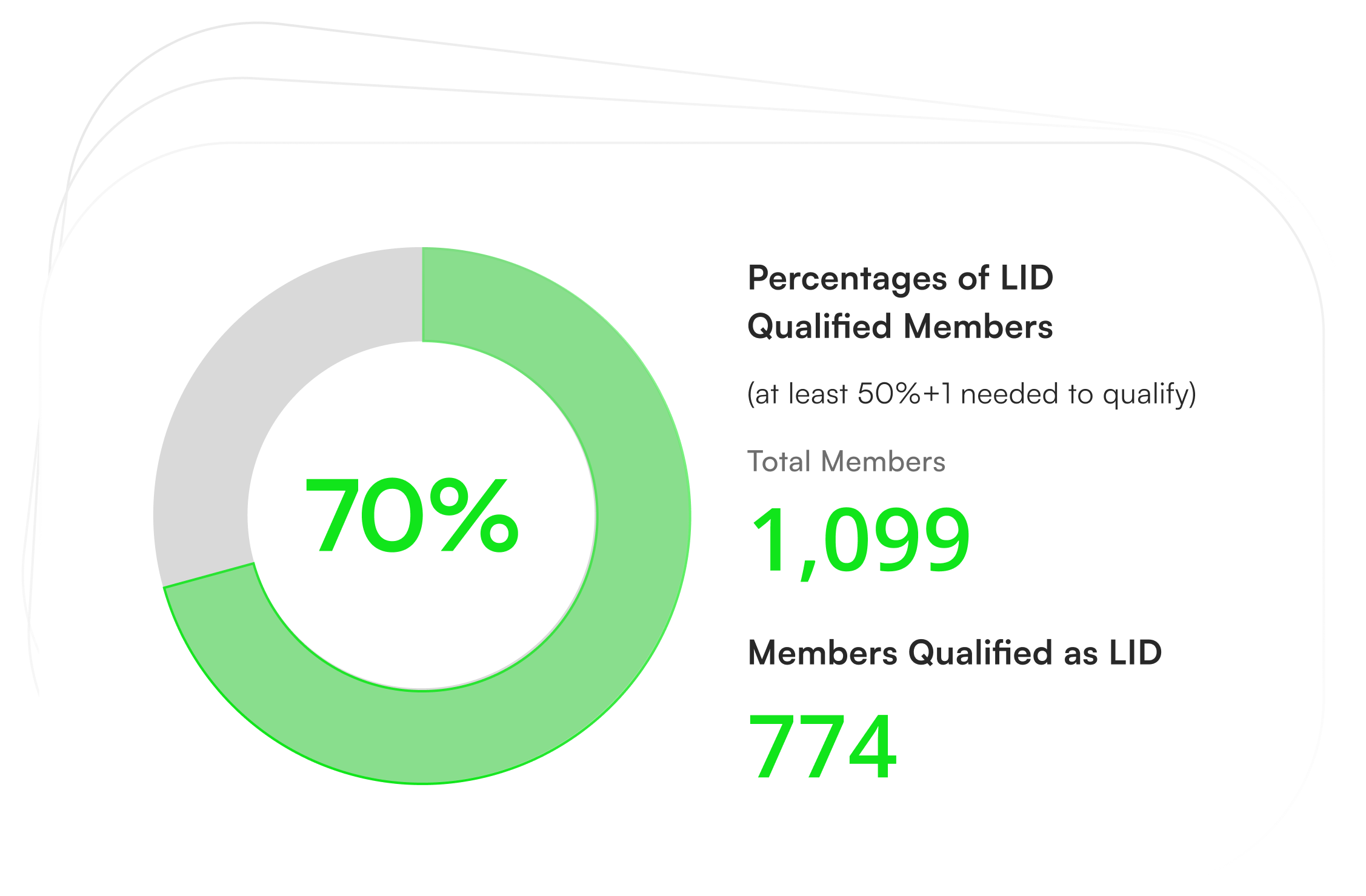Grow Membership & Expand Lending with a Low-Income Designation
Data-Driven LID Support for Credit Unions


Why LID Matters More Then Ever
Running a credit union today means navigating a storm of challenges:
Business Lending Cap: Credit unions are restricted to a 12.25% cap on member business loans, limiting their ability to support local entrepreneurs.
Fixed Asset & PCA Rules: Regulations like the fixed asset cap and net worth requirements constrain growth and operations.
Missed Grants & FOM Growth: Without LID, credit unions lose access to financial grants and face challenges expanding into underserved areas.
But there’s a strategic solution that can give your credit union a real advantage:
A Low- Income Designation (LID)
An undeniable, competitive edge
Credit Unions with LID gain access to a host of benefits:
Lift the Member Business Loan Cap
Fuel local economic development without limits
Boost Net Worth with Subordinated Debt
Secondary capital counts toward your net worth ratio
Accept Non-Member Deposits
Raise funds from any source—up to the greater of $3M or 50% of your total shares
Access CDRLF Grants and Loans
Unlock technical assistance grants and low-cost loans through the NCUA
Grow Membership via Associational Paths
Federal community credit unions can add volunteers, association participants, and more
We deliver fast and informed LID results by combining proprietary software built with custom tools and deep subject matter expertise
100%
success rate in LID
designations

100%
approval rate for securing secondary capital

46
active LID clients in
2024


CDRLF
funding secured for 12
credit unions
Three Routes to LID
Three Routes to LID
With our proven approach, any credit union can attain LID. We guide you through the path that makes the most strategic and practical sense for your institution.
Book Your LID Strategy Session
01/
AIRES Data
Analysis
The standard and most common route—match member data to LID geographies.
02/
Presumed Low-Income Community
Credit unions with community charters can use your FOM’s total potential membership to qualify.
03/
Loan Portfolio
Analysis
Demonstrate that the majority of your lending serves low-income borrowers.
Our Proven, Tech-Enabled Approach
We provide credit unions with a path to attain LID with certainty. And once you attain LID, we make it easier for you to keep it.
Book Your LID Strategy Session

Built to Help You Attain and Retain LID
Baseline Assessment: Review your current data and eligibility

Data Clean-Up & Enrichment
Identify data enrichment needed to maximize your current membership potential with qualifying individuals

Another Option for those with a Federal Community Charter
Easily build reports to demonstrate that a majority of the total potential membership meets the low-income definition.

For a Select Few, Loan Analysis is the Answer
Identify the % of Your Loans Issued to a Low-Income Target Population

Forward Flow Lending Partners
Our fintech lending partners leverage CUCollaborate’s proprietary LID & FOM APIs along with the credit union’s membership application and loan documentation to provide our clients with a consistent pipeline of new members and qualifying loans

Already have LID
We make it easier for you to retain your status through tracking and monitoring tools, including LID dashboards, APIs, and custom mapping tools.
Achieve More with the Power of LID
Regardless of where you are in your LID journey, we’ll help you use LID to fuel your mission, fund your growth, and serve your members better.













